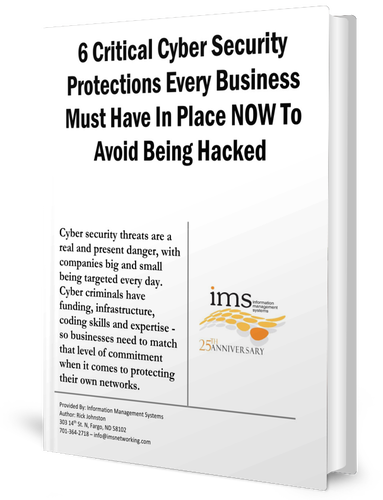
Health insurance is designed to offer essential care and services. Unfortunately, it’s also becoming a tool for scammers. In early 2024, Change Healthcare suffered a cyber-attack affecting countless health care providers, insurers, and policyholders nationwide. This breach puts about 50% of U.S. medical claims at risk. For residents of North Dakota, Minnesota, and South Dakota, this means there’s a significant chance that your medical identity could be compromised this year.
Understanding how to identify medical fraud and protect yourself is crucial. The impact of such fraud can be severe, leading to false claims, unauthorized prescriptions, and billing issues. Here's how to recognize and respond to potential medical fraud.
How to Recognize Medical Fraud in Your Area
Detecting medical fraud early is essential to minimizing damage. Here are ten signs that your medical ID might be stolen and misused:
1. Unexpected Medical Bills
Receiving bills for medical services you didn’t receive is a major red flag. If you live in the Upper Midwest and get a bill for a procedure or service you never had, it could indicate fraud.
2. Collection Notices
Being contacted by debt collectors for unpaid medical bills that aren’t yours suggests your medical ID may be compromised. This is especially concerning in rural areas where such scams might be less anticipated.
3. Errors in Medical Records
Finding inaccuracies in your medical records, such as treatments you never had or incorrect diagnoses, is a significant warning sign. In North Dakota, Minnesota, and South Dakota, checking your records regularly can help catch these errors early.
4. Insurance Issues
If your health insurance claims are denied due to maxed-out benefits or coverage limits you haven’t reached, this could be a result of fraudulent activity. This is particularly troubling for those in smaller communities where such issues might be harder to detect.
5. Notifications from Your Insurance Provider
Receiving alerts from your insurance provider about claims or services you don’t recognize is another red flag. In the Upper Midwest, where personal relationships with providers are common, unexpected notifications should be carefully reviewed.
6. Unknown Accounts
Discovering new health insurance accounts or medical records under your name that you didn’t create indicates potential fraud. This can be particularly alarming if you live in smaller towns where such discrepancies may be more noticeable.
7. Discrepancies in Your Explanation of Benefits (EOB)
Your EOB statements from your insurer listing medical services you didn’t receive could signal fraud. Ensure to scrutinize these documents to catch any inconsistencies early.
8. Difficulty Obtaining Insurance
Having trouble obtaining life or health insurance due to medical conditions listed in your records that you don’t have could indicate that your medical information is being misused.
9. Calls from Medical Providers
Receiving calls about appointments or follow-ups for treatments you didn’t have is a sign that someone might be using your medical information fraudulently. This is a critical alert, especially in areas where medical providers might be closely knit.
10. Unfamiliar Prescriptions
Notices about prescriptions filled in your name that you didn’t authorize or receive are a clear indicator of medical fraud. Always verify prescriptions to avoid falling victim to this type of scam.
How to Protect Yourself from Medical Fraud in North Dakota, Minnesota, and South Dakota
Taking proactive steps to protect yourself can help prevent medical fraud. Here are some practical measures to safeguard your information:
Check for Health Care Breaches
Use a searchable database to check if your health care information has been compromised. Staying informed about potential breaches can help you act swiftly if your data is at risk.
Secure Your Records
Store paper copies of medical records in a safe or lockbox. This precaution is especially useful if your health care organization’s system is compromised.
Shred Documents
Shred any documents with personal information before disposing of them. This helps prevent identity theft from discarded paperwork.
Monitor Your Medical Records
Regularly request and review your medical records from your health care providers. Look for unfamiliar treatments, diagnoses, or discrepancies that might indicate fraud.
Review Insurance Bills
Carefully review your EOB statements for any services you didn’t receive. Question any unfamiliar or unclear charges and contact your insurer immediately if you spot discrepancies. Report any billing errors to the credit bureaus at IdentityTheft.gov.
Dispose of Prescription Labels
Remove labels from empty prescription bottles before discarding them. These labels can contain information that might be used for identity theft.
Monitor Your Credit
Use AnnualCreditReport.com to get three free credit reports a year. Regular monitoring can help you spot suspicious activity early and take action to protect your financial information.
Health care will always be around and will also always be a target for hackers. Attacks on hospitals, doctors’ offices and other medical facilities will continue. It’s important that you are taking proactive measures to protect yourself. We can help you find out how you’re at risk starting with our FREE Discovery Call. To book your Discovery Call, call us at 701-364-2718 or click here.



